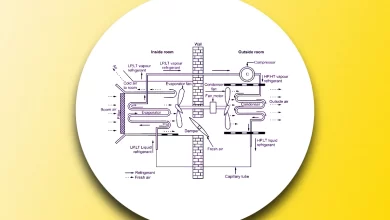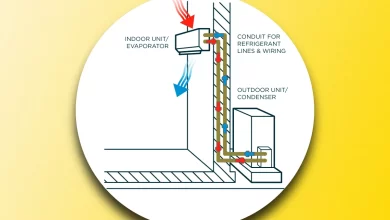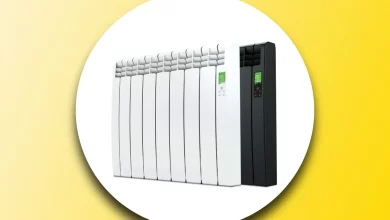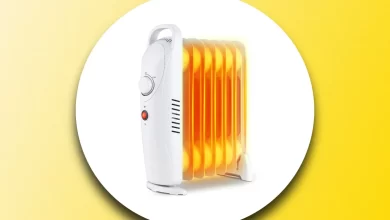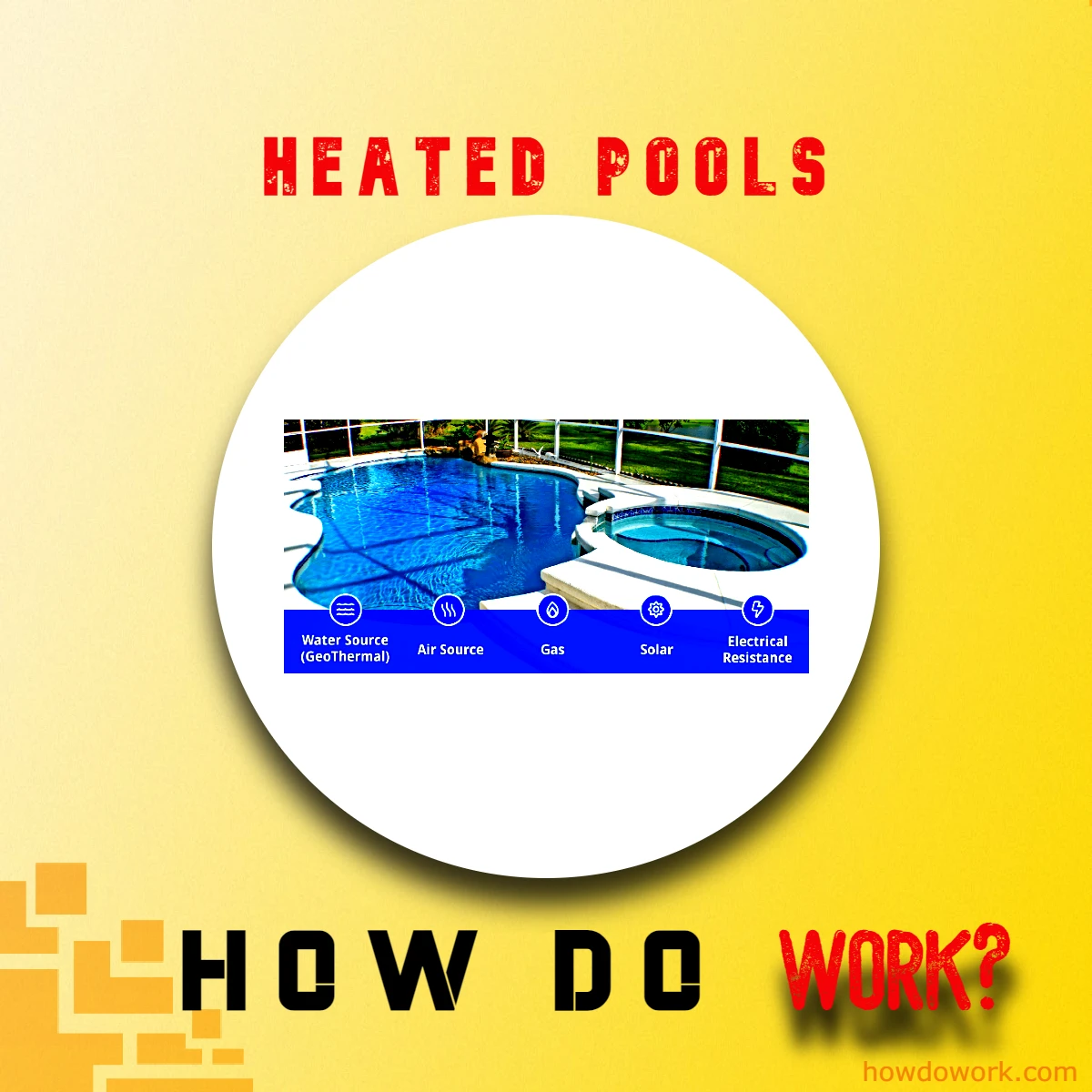
Heated pools operate through various methods, each offering a unique blend of technology and natural resources. Electric heaters employ resistance elements to swiftly generate warmth, providing quick access to comfortably heated water. Gas heaters, on the other hand, rely on natural gas or propane combustion to deliver consistent and rapid heating, ensuring the pool remains warm even in colder conditions. Solar heaters harness the sun’s energy through panels that gradually warm the water, offering an eco-friendly and cost-effective heating solution. These diverse mechanisms, whether electric, gas, or solar, harmonize to create the year-round sanctuary of comfort and relaxation that heated pools are known for.
| Aspect | Electric Heaters | Gas Heaters | Solar Heaters |
|---|---|---|---|
| Heating Method | Electric resistance element | Combustion of natural gas or propane | Solar panels capture sunlight |
| Heating Speed | Quick heating | Quick and consistent heating | Slower heating; sunlight-dependent |
| Energy Source | Electricity | Natural gas or propane | Solar energy from the sun |
| Temperature Control | Precise thermostat control | Precise thermostat control | Depends on sunlight availability |
| Environmental Impact | Moderate | Moderate | Low (environmentally friendly) |
| Initial Cost | Moderate | High | High (panels and installation) |
| Operational Costs | Higher | Higher | Lower (reduced energy bills) |
| Suitable Climates | All climates | All climates | Sunnier climates with consistent sunlight |
| Sustainability | Less sustainable (electricity use) | Less sustainable (fossil fuels) | Environmentally sustainable |
| Maintenance | Regular maintenance needed | Regular maintenance needed | Minimal maintenance required |
| Heating Speed Preference | Quick results | Quick and consistent heating | Eco-conscious, gradual heating |
Contents
- What are the heated pools work?
- How Do Heated Pools Work?
- The Benefits of Heated Pools
- Maintaining and Operating Heated Pools Efficiently
- Troubleshooting Common Issues in Heated Pools
- Innovations in Pool Heating Technology
- Making the Most of Your Heated Pool
- Choosing the Right Heating System for Your Pool
- Conclusion
- FAQs
What are the heated pools work?
In the realm of aquatic luxury, heated pools stand as an epitome of modern comfort and technological innovation. These aqueous havens, while seemingly ordinary, hide a world of intricate engineering beneath their shimmering surfaces.
Heated pools are a testament to human ingenuity, where the interplay of electrical currents, gas combustion, or the inexhaustible power of the sun converges to create an environment that defies the capriciousness of weather. Electric heaters, with their swift, electric resistance elements, generate heat at the flip of a switch, embracing the water with a soothing warmth. Gas heaters, powered by natural gas or propane, burn brightly to produce the heat that unfailingly maintains a consistent pool temperature. And then there are the solar heaters, champions of sustainability, harnessing the boundless energy of the sun’s rays to gradually infuse the water with a gentle warmth. These technologies, each with its unique charm and character, redefine the very essence of a pool, offering not mere relaxation but an experience that transcends seasons.
How Do Heated Pools Work?
Heated pools are more than just a luxury; they are a testament to human ingenuity. These pools are designed to maintain a consistent and comfortable water temperature, regardless of the ambient weather conditions. The key to their operation lies in heating systems, which come in various forms, including electric heaters, gas heaters, and solar heaters.
Electric Heaters
Electric heaters are a popular choice for heating pools. They operate by using an electric resistance element, much like the heating element in an electric oven. When electricity flows through this element, it generates heat, which is transferred to the pool water via a heat exchanger. This process ensures that the pool water remains warm and inviting.
One of the advantages of electric heaters is their ability to quickly heat the pool. They are ideal for those who want to enjoy their pool at a moment’s notice, as they can raise the water temperature relatively fast. However, they tend to be less energy-efficient compared to other heating options, which can lead to higher operational costs.
Gas Heaters
Gas heaters are another common choice for heating pools. These heaters utilize either natural gas or propane as a fuel source to generate heat. Gas heaters have a combustion chamber where the gas is burned, producing hot combustion gases. These gases are then passed through a heat exchanger, where the pool water circulates, absorbing the heat.
One of the significant advantages of gas heaters is their ability to maintain consistent warmth in the pool, even in extremely cold conditions. They are also efficient in heating the water quickly, making them suitable for those who want rapid results. However, their operational costs can be relatively high due to the cost of gas.
Solar Heaters
For eco-conscious pool owners, solar heaters are an excellent choice. These systems harness the power of the sun to heat the pool water, making them energy-efficient and environmentally friendly. Solar heaters consist of solar panels, often installed on the roof of a nearby building or on the ground, that capture sunlight.
The captured sunlight is then used to heat a fluid, typically water or a special heat-transfer fluid, within the solar panels. This heated fluid is then circulated through a heat exchanger, where it transfers its warmth to the pool water. As a result, the pool water gradually warms up, providing a sustainable and cost-effective heating solution.
Table 1: Pros and Cons of Different Pool Heating Systems
| Heating System | Pros | Cons |
|---|---|---|
| Electric | Quick heating | Higher operational costs |
| Gas | Quick and consistent heating | High operational costs |
| Solar | Environmentally friendly | Slower heating; depends on sunlight |
Maintaining the Desired Temperature
Once the pool water is heated to the desired temperature, maintaining that warmth is crucial. Pool heaters are equipped with thermostats that allow you to set the desired water temperature. When the temperature falls below the set point, the heater kicks in to raise it back to the desired level. Conversely, when the temperature exceeds the set point, the heater turns off to prevent overheating.
This thermostat-controlled mechanism ensures that your pool remains at the perfect temperature for swimming, no matter the season or weather conditions. It’s like having your personal climate control system for your pool, providing comfort and convenience.
The Benefits of Heated Pools
Now that we’ve uncovered the inner workings of heated pools, let’s explore the numerous benefits they offer. Heated pools are not just about luxury; they provide a host of advantages that can enhance your swimming experience and overall well-being.
1. Extended Swimming Season
One of the most apparent benefits of a heated pool is the extension of the swimming season. With a heated pool, you’re not limited to enjoying it only during the summer months. You can take a dip year-round, whether it’s a crisp autumn evening or a chilly winter morning. This extended season ensures that you get the most out of your investment and can enjoy your pool whenever the mood strikes.
2. Enhanced Comfort
Swimming in a heated pool is a delight for your senses. The water feels warm and inviting, making your swim more comfortable and enjoyable. It’s like having your private oasis of relaxation, where you can unwind and destress after a long day. The soothing warmth of the water can also be therapeutic, easing muscle tension and promoting relaxation.
3. Health Benefits
Heated pools offer various health benefits. The warm water can improve blood circulation, alleviate joint pain, and promote muscle relaxation. It’s an excellent option for individuals seeking low-impact exercise, as the buoyancy of the water reduces the strain on joints while providing an effective workout. Moreover, swimming in a heated pool can help relieve stress and improve overall mental well-being.
4. Family and Social Time
A heated pool becomes a focal point for family gatherings and social events. It’s a place where friends and family can come together, swim, relax, and create lasting memories. Whether you’re hosting a poolside barbecue or a late-night swim under the stars, a heated pool provides the perfect backdrop for quality time with loved ones.
5. Increased Property Value
From an investment perspective, a heated pool can increase the value of your property. It adds a desirable feature that can attract potential buyers if you ever decide to sell your home. Many homebuyers see a heated pool as a valuable addition, especially in regions with cooler climates.
6. Customizable Temperature Control
Heated pools offer precise temperature control, allowing you to tailor the water temperature to your preference. Whether you like it warm and soothing or slightly cooler for a refreshing swim, you have the flexibility to adjust the settings to suit your mood and needs. This level of customization ensures that your swimming experience is always just right.
7. Energy Efficiency
Solar heating systems, in particular, are known for their energy efficiency. They harness renewable energy from the sun, reducing your reliance on conventional energy sources. Over time, this can lead to significant cost savings on your energy bills while also reducing your carbon footprint.
Maintaining and Operating Heated Pools Efficiently
Once you’ve chosen the right heating system for your pool, it’s essential to understand how to operate and maintain it efficiently. Proper maintenance ensures that your pool remains a source of enjoyment and relaxation throughout the year.
1. Regular Inspection and Cleaning:
Inspect your heating system regularly for any signs of wear or damage. Clean debris from filters, and ensure that all components are functioning correctly. Neglecting maintenance can lead to reduced efficiency and higher operational costs.
2. Optimize Temperature Settings:
Set your pool’s thermostat to the desired temperature, but avoid overheating the water, which can waste energy. Consider investing in a pool cover to reduce heat loss during the night or when the pool is not in use.
3. Schedule Heating Wisely:
Use a timer to schedule when your pool heater operates. This way, you can ensure that the pool is at the perfect temperature when you want to use it and conserve energy when it’s not in use.
4. Consider a Pool Cover:
A pool cover can be a valuable addition to your heated pool. It helps retain heat, reduce evaporation, and prevent debris from entering the pool. This can significantly decrease your heating costs and extend the life of your heating system.
5. Regular Professional Service:
Hiring a professional for annual maintenance and servicing is a wise investment. They can inspect and clean your heating system thoroughly, ensuring it operates efficiently and identifying any potential issues before they become costly problems.
Troubleshooting Common Issues in Heated Pools
Heated pools provide year-round enjoyment, but like any complex system, they can occasionally encounter issues. In this section, we’ll explore common problems that pool owners may face with their heated pools and how to troubleshoot them effectively.
1. Insufficient Heating:
Issue: If your heated pool is not reaching the desired temperature, there may be several causes, including inadequate heating system size, a malfunctioning heater, or heat loss.
Troubleshooting:
- Check Thermostat Settings: Ensure that the thermostat is set to the desired temperature.
- Inspect Heating System: Check for any error codes or warning lights on your heating system. Clean filters and ensure there are no blockages in the heating elements.
- Assess Pool Cover: If you have a pool cover, make sure it’s in good condition and properly fitted. A damaged or ill-fitting cover can lead to heat loss.
2. Inconsistent Heating:
Issue: If your heated pool experiences temperature fluctuations, it can be frustrating. This problem may be due to issues with the thermostat, a malfunctioning heating element, or water flow problems.
Troubleshooting:
- Calibrate Thermostat: Ensure that the thermostat is accurately calibrated. Incorrect calibration can lead to temperature fluctuations.
- Check for Air Bubbles: Air bubbles in the heating system can disrupt water flow and heating efficiency. Bleed air from the system if necessary.
- Inspect Water Circulation: Ensure that the pool pump is functioning correctly, and water is circulating as it should. A faulty pump can lead to inconsistent heating.
3. Unusual Noises:
Issue: Unusual noises from your heating system can indicate various issues, such as debris in the system, loose components, or mineral buildup.
Troubleshooting:
- Inspect for Debris: Check for debris or foreign objects in the heating system or circulation pipes. Clear any obstructions.
- Tighten Loose Components: Tighten any loose bolts or components that may be causing vibrations or rattling.
- Address Mineral Buildup: If you have hard water, mineral buildup can occur in the heating system. Consider descaling or using a water softener.
4. Heater Won’t Turn On:
Issue: If your pool heater fails to turn on, it could be due to electrical issues, a malfunctioning thermostat, or a faulty ignition system.
Troubleshooting:
- Check Power Supply: Ensure that the heater is receiving power and that circuit breakers and switches are in the correct position.
- Inspect Ignition System: If you have a gas heater, check the ignition system for any issues. Clean or replace the igniter if necessary.
- Thermostat Calibration: Verify that the thermostat is correctly calibrated and set to the desired temperature.
5. Leaks or Water Loss:
Issue: If you notice water loss or discover leaks around your heating system, it’s essential to address the problem promptly.
Troubleshooting:
- Inspect for Leaks: Carefully examine the heating system, pipes, and connections for any signs of leakage. Address any leaks immediately to prevent water loss and system damage.
- Pressure Test: Conduct a pressure test to identify the source of a leak if it’s not visible. This may require professional assistance.
6. Excessive Energy Consumption:
Issue: If your heated pool is causing a significant increase in energy bills, it may be due to inefficiencies in the heating system or poor insulation.
Troubleshooting:
- Evaluate Heating System Efficiency: Ensure that your heating system is functioning optimally. Clean or service it regularly to improve efficiency.
- Inspect Insulation: Check the insulation around your pool and heating system. Proper insulation can help retain heat and reduce energy consumption.
7. Error Codes on the Control Panel:
Issue: If your heating system displays error codes on the control panel, it indicates a specific issue that requires attention.
Troubleshooting:
- Refer to the Manual: Consult your heating system’s manual to decipher error codes and follow the recommended troubleshooting steps.
- Professional Assistance: If you are unsure about how to address error codes or if they persist, seek professional assistance from a pool heater technician.
Innovations in Pool Heating Technology
As technology continues to advance, so does the world of pool heating. New innovations are constantly emerging, offering pool owners even more efficiency, convenience, and control over their heated pools. In this section, we’ll explore some of the latest technological advancements in pool heating.
1. Smart Pool Heaters:
The rise of smart technology has extended to pool heaters. Smart pool heaters can be controlled remotely through smartphone apps or integrated with home automation systems like Alexa or Google Home. This allows you to adjust the pool’s temperature, schedule heating times, and monitor energy usage from anywhere, providing unparalleled convenience and energy savings.
2. Variable Speed Pool Pumps:
While not a heating system itself, the pool pump plays a vital role in maintaining water circulation and distributing heated water. Variable speed pool pumps are a recent innovation that allows for precise control of water flow. They adjust their speed based on the pool’s heating needs, reducing energy consumption and operating costs.
3. Heat Exchanger Efficiency:
Improvements in heat exchanger technology have led to more efficient pool heaters. These enhanced heat exchangers maximize the transfer of heat from the heating element to the pool water, ensuring that less energy is wasted. As a result, pool owners can enjoy a warm pool while keeping operational costs in check.
4. Hybrid Heating Systems:
Hybrid heating systems combine two or more heating methods to optimize efficiency. For example, a system may use a gas heater to provide rapid initial heating, followed by a solar heater to maintain temperature. This approach minimizes both the upfront costs and long-term operational expenses.
5. Eco-Friendly Refrigerants:
Some pool heaters are now using eco-friendly refrigerants that have a lower impact on the environment. These refrigerants not only reduce greenhouse gas emissions but also contribute to the overall sustainability of heated pool systems.
Table 3: Advancements in Pool Heating Technology
| Technological Advancement | Benefits |
|---|---|
| Smart Pool Heaters | Remote control, energy savings, convenience |
| Variable Speed Pool Pumps | Energy efficiency, reduced operating costs |
| Heat Exchanger Efficiency | Improved heat transfer, reduced energy waste |
| Hybrid Heating Systems | Cost-effective heating, optimized efficiency |
| Eco-Friendly Refrigerants | Reduced environmental impact, sustainability |
Making the Most of Your Heated Pool
Now that you’re well-versed in heated pool technology and its benefits, let’s explore some tips to make the most of your investment.
1. Regular Maintenance:
Consistent maintenance is crucial to keep your heated pool in top condition. Clean filters, inspect the heating system, and address any issues promptly. A well-maintained system operates efficiently, saving you money and extending its lifespan.
2. Energy-Efficient Landscaping:
Consider landscaping elements that can help retain heat and reduce wind chill around your pool. Trees, shrubs, and windbreakers can create a more comfortable environment, reducing the workload on your heating system.
3. Optimal Pool Cover:
Invest in a high-quality pool cover designed to retain heat and reduce evaporation. Using a pool cover when the pool is not in use can significantly reduce heating costs and conserve energy.
4. Temperature Control:
Use your pool’s thermostat wisely. Avoid overheating the water, as it can lead to unnecessary energy consumption. Set the temperature to a comfortable level and adjust as needed.
5. Solar Heating Maximization:
If you have a solar heating system, ensure that your solar panels receive maximum sunlight. Trim any shading trees or structures, and keep the panels clean for optimal heat absorption.
6. Consider Pool Automation:
Explore pool automation systems that can integrate your heating, filtration, and maintenance processes. Automation can help you streamline pool management, ensuring that your pool is always ready for a swim.
7. Eco-Friendly Practices:
If sustainability is a priority, consider eco-friendly heating options like solar heaters and hybrid systems. Additionally, look for ways to reduce your pool’s environmental impact, such as using energy-efficient equipment and minimizing water waste.
Choosing the Right Heating System for Your Pool
Now that we’ve explored the benefits of heated pools, let’s delve deeper into the considerations for choosing the right heating system for your pool. Your choice will depend on factors like budget, climate, environmental concerns, and personal preferences.
Electric Heaters:
Electric heaters are a popular choice for those who prioritize quick heating. They are relatively easy to install and offer precise temperature control. Electric heaters can be a suitable option if you don’t mind higher operational costs and are looking for on-demand heating. However, it’s essential to consider your energy budget, as they can be less energy-efficient than other options.
Gas Heaters:
Gas heaters are ideal for those who need consistent and rapid heating. They are efficient in maintaining the desired water temperature, even during cold weather. If you have access to natural gas or propane and are willing to invest in a more substantial upfront cost, a gas heater might be the right choice. Keep in mind that operating costs can be high due to gas consumption.
Solar Heaters:
Solar heaters are a fantastic eco-friendly option. They use renewable energy from the sun, reducing your carbon footprint and energy bills. While solar heaters might have a higher initial installation cost, they pay off in the long run with reduced operational expenses. However, they are reliant on sunlight and might not be the best choice if you live in an area with frequent cloud cover or limited sunlight.
Table 2: Choosing the Right Heating System for Your Pool
| Consideration | Electric Heaters | Gas Heaters | Solar Heaters |
|---|---|---|---|
| Quick Heating | Yes | Yes | No |
| Consistent Heating | Yes | Yes | Depends on sunlight |
| Energy Efficiency | Moderate | Moderate | High |
| Environmental Impact | Average | Average | Low |
| Initial Cost | Moderate | High | High |
| Operational Costs | Higher | Higher | Lower |
| Sunlight Dependence | No | No | Yes |
Conclusion
Heated pools are a fantastic addition to any property, offering year-round enjoyment, relaxation, and health benefits. Choosing the right heating system for your pool is a crucial decision, influenced by factors like climate, budget, and environmental concerns. Whether you opt for electric, gas, or solar heating, proper maintenance and efficient operation are essential for getting the most out of your heated pool. With the right heating system and a commitment to maintenance, you can create your personal oasis of warmth and luxury, transforming your pool into a source of joy for yourself, your family, and your friends.
FAQs
Heated pools work by using various heating systems to increase the temperature of the pool water. The most common methods include electric heaters, gas heaters, and solar heaters, each employing different technologies to generate and maintain warmth.
Electric heaters use electric resistance elements to produce heat. When electricity flows through these elements, they generate warmth, which is then transferred to the pool water via a heat exchanger. This process allows for quick and precise temperature control.
Gas heaters utilize either natural gas or propane to create heat. They have a combustion chamber where the gas is burned, generating hot gases. These gases are then passed through a heat exchanger, where the pool water circulates, absorbing the heat. Gas heaters are known for their rapid and consistent heating capabilities.
Solar heaters capture sunlight through solar panels, often installed on rooftops or the ground. This sunlight is then used to heat a fluid within the panels, typically water or a heat-transfer fluid. The heated fluid is subsequently circulated through a heat exchanger, transferring warmth to the pool water. Solar heaters offer an eco-friendly and cost-effective heating solution but are reliant on sunlight availability.
Certainly. Heated pools offer benefits such as enhanced comfort, therapeutic advantages, increased property value, and the ability to host social gatherings year-round. The warmth of the water can improve circulation, reduce joint pain, and promote relaxation and stress relief.
The choice of a heating system depends on factors like your budget, climate, and environmental concerns. Electric heaters are quick but have higher operational costs. Gas heaters offer rapid, consistent heating but can be costly to operate. Solar heaters are eco-friendly but depend on sunlight. Consider your priorities and consult with a professional to make an informed decision.
Regular maintenance is essential to keep your heated pool in top condition. This includes cleaning filters, inspecting for debris or blockages, and servicing the heating system annually. Additionally, consider using a pool cover to reduce heat loss and conserve energy.
Troubleshooting may involve checking thermostat settings, inspecting for leaks, ensuring proper water circulation, and addressing unusual noises or errors displayed on the control panel. Timely maintenance and, if necessary, professional assistance can resolve most issues effectively.
Yes, recent innovations include smart pool heaters that can be controlled remotely, variable speed pool pumps for energy efficiency, and eco-friendly refrigerants to reduce environmental impact. Keeping up with these advancements can help you enhance the efficiency and convenience of your heated pool.
Heated pools offer a year-round oasis of warmth and relaxation, extending the swimming season, providing comfort, and delivering various health benefits. They are not just a luxury but a source of well-being and enjoyment for individuals and families alike.
Read More:
